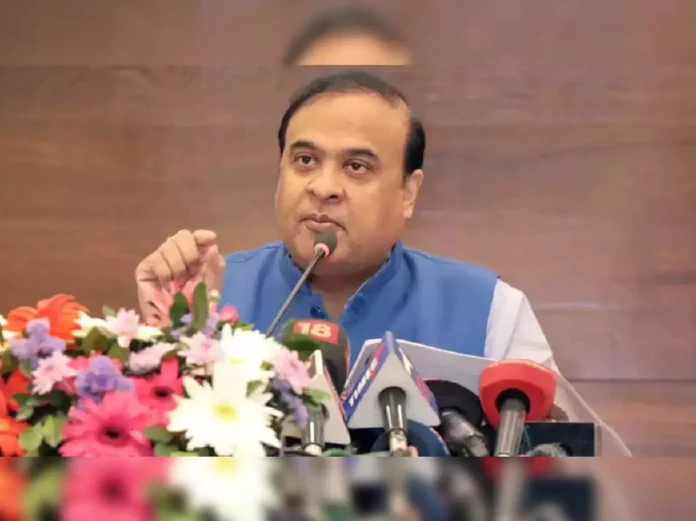Assam Chief Minister Himanta Biswa Sarma made controversy during a recent poll rally in Jharkhand by asserting that in order to engage in politics in India, one must proclaim ‘Jai Shree Ram’. Addressing the rally on May 22, Sarma expressed apprehensions regarding the ramifications of illegal infiltration on the social fabric of various states. His remarks have sparked a heated discussion on the topic of immigration and its broader socio-cultural implications.
Sarma’s assertion about the necessity of saying ‘Jai Shree Ram’ to partake in Indian politics has drawn both criticism and support from various quarters. While some view it as a reflection of the prevailing religious and cultural dynamics in Indian politics, others perceive it as exclusionary and polarizing.
The Chief Minister’s remarks come at a time when the issue of illegal immigration remains a contentious topic in the national discourse. Assam, in particular, has been grappling with the challenges posed by undocumented migrants for decades. Sarma’s comments underscore the gravity of this issue and its impact on the social, economic, and political landscape of the region.
The assertion made by Sarma raises questions about the intersection of religion and politics in India. While the country prides itself on its secular ethos, instances of religious rhetoric permeating political discourse are not uncommon. Sarma’s statement reignites debates surrounding the secular nature of the Indian polity and the extent to which religious identity influences political participation and discourse.
Furthermore, Sarma’s remarks highlight the complexities surrounding immigration and its socio-cultural repercussions. The influx of migrants, both legal and illegal, has long been a contentious issue, often fueling tensions and conflicts in various parts of the country. Sarma’s focus on this issue underscores the need for comprehensive policies and measures to address the challenges posed by immigration while safeguarding the interests of all stakeholders.
As Sarma’s comments continue to reverberate across political and social circles, they serve as a reminder of the multifaceted nature of Indian politics and the myriad challenges it faces. The intersection of religion, immigration, and socio-cultural dynamics underscores the complexity of governance in a diverse and pluralistic society like India.
Perhaps, Sarma’s remarks serve as a catalyst for introspection and dialogue on crucial issues that shape the socio-political landscape of the country. As the debate unfolds, it remains imperative for stakeholders to engage in constructive discussions aimed at fostering inclusivity, tolerance, and understanding in Indian politics and society.


